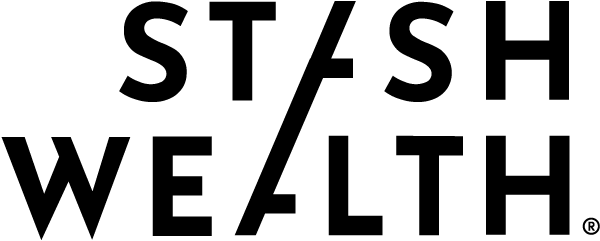How Fed interest rate hikes affect you
The Fed raises interest rates when they want to “cool off” the economy by increasing the cost of credit. Higher interest rates make loans more expensive for both businesses and consumers, and everyone ends up spending more on interest payments. But while housing, auto, and credit card rates rise, so too does the interest you can earn from high-yield savings accounts.
Michael Feroli, chief economist at J.P Morgan once said, “Whenever the Fed hits the brakes, someone goes through the windshield.”
It’s March 2023. The symbolic vehicle of our economy has come to a screeching halt, and no one is wearing a seatbelt. Fed interest rate hikes have broad implications, not only for the macro economy but also for the microeconomic life of millions of Americans.
On a macro level, two historically volatile weeks brought about the death of four banks and left a fifth teetering on the edge of collapse. Nonetheless, Fed policymakers recently voted unanimously to raise their benchmark interest rate by a quarter percentage point to just under 5%. Such rate hikes affect the lives of individual Americans in various ways, making it more expensive for people seeking car loans or carrying a balance on their credit cards with a variable interest rate.
Before we delve into the details of how rate hikes affect you, you might be wondering how we got here. Why is inflation higher than Snoop Dogg on April 20th? Why are consumer prices soaring to heights not seen since Jeff Bezos launched himself into space?
A long long time ago in a one-party communist dictatorship galaxy not so far away…a man ate a bat (or a laboratory leaked, depending on who you ask). Every citizen of the world was forced to hunker down and hide in their homes for the next two years. But the Federal Bank doesn’t like it when people do that, primarily because it means they’re not spending money. So they responded by lowering interest rates to historically low levels, and we responded accordingly by borrowing money - like, a lot of it. Banks made long-term plays and investors bet on prospective profits, but by the time the Fed could say, “Hey wait, don’t spend that much money” it was too late. And now we’re paying the price.
What happens when the Fed raises interest rates?
The Fed raises interest rates when they want to “cool off” the economy by increasing the cost of credit. Higher interest rates make loans more expensive for both businesses and consumers, and everyone ends up spending more on interest payments. This encourages individuals to save money, thereby reducing the supply of money in circulation.
How Fed interest rate hikes affect you
Fed Chair Jerome Powell has acknowledged that aggressively raising interest rates would bring “some pain” for households but that doing so is necessary to crush high inflation. Here are the three pain points you’re most likely to experience.
How rising interest rates affect the housing market
Unless you have a couple of million dollars sitting around collecting dust, you’ll likely need to finance the purchase of a new home. But borrowing from the bank amidst interest rate hikes is seldom good news for would-be homebuyers. Why? Because higher interest rates often result in higher mortgage rates, and therefore higher monthly payments. If you’re in the market for a new home, be prepared to spend a larger chunk of your monthly No on your new house. In addition, you’ll likely have a lower loan amount you can handle as a result of those higher monthly payments.
This could particularly impact first-time buyers because they don’t have the money from the sale of a home to offset a lower loan amount with a higher down payment. It’s also important to remember there is no direct correlation between the market value of a home and the cost of borrowing the money you’ll use to pay for that home. While the housing market cools down and the average price of homes begins to drop, that doesn’t necessarily mean that your monthly payments will be lower too. If interest rates remain high, your monthly mortgage payments will follow suit.
The most important thing for homebuyers and owners to be aware of is the difference between fixed-rate and variable-rate mortgages. If you bought a home two years ago with a fixed-rate mortgage, you’re likely feeling pretty good right now relative to home buyers who are just now entering the market. If you opted for a variable rate, your monthly payments have likely increased steadily.
For those of you looking to buy a home, here’s our advice: don’t. Not now, not ever. If you’d like to get an in-depth understanding of why we discourage our clients from buying a home, check out this helpful article: Why you shouldn’t buy a home, from someone who’s bought four.
How interest rates affects auto loans
Although rates vary based on several factors, including the type of vehicle, the time of year, or a borrower’s credit score, the baseline for auto loan rates is set by current interest rates. When the Fed raises interest rates, auto loans follow suit.
Sarah Foster, senior U.S. economy reporter at Bankrate notes “The Fed has raised interest rates 4.5 percentage points since March 2022, and Bankrate data shows four- and five-year new and used car loans have jumped by more than 2 percentage points in that short period of time.”
The main takeaway: unless you’re in dire need of a new whip or have several thousand dollars laying around that would enable you to buy a car in cash, hold off for now. The Fed pumped the brakes and we don’t want to see you fly through the windshield of your brand-new, overly-priced vehicle.
How the interest rate affects your credit card
Because most credit cards with variable interest rates follow the benchmarks set by the Fed, credit card rates are now averaging above 20%, an all-time high. Now more than ever you’ll want to ensure that your credit card balance remains low.
If you opened a new credit card in 2021 with an APR of 18%, your issuer has likely increased that number by 2-3% since then. This is when using your credit card like an adult and making timely payments is pivotal. If that’s the case, you have nothing to worry about. But for the rest of you, the cost of carrying debt is now higher than it’s been in recent history. Our recommendation: prioritize paying down your credit card before anything else because it’s likely your highest-interest debt.
Fed interest rate hikes are lined with silver
No, the sky is not falling. As long as you’ve got your financial sh*t together, the Fed can’t hurt you. Unless you’re planning on making a big purchase like a home or a car, you’re unlikely to even notice the recent rate hikes. In fact, there are a few instances in which interest rate hikes can have a positive effect on American consumers, specifically those who are more inclined to SAVE.
The returns on high-yield savings accounts and certificates of deposit (CDs) are the highest they’ve been in 15 years. “The combination of rising interest rates and inflation on the decline is the best of both worlds for savers, Greg McBride, CFA, Bankrate's chief financial analyst. “But where you have your cash parked really matters. The top-yielding savings accounts and certificates of deposit remain the place to be as those are the banks that are raising their payouts in an effort to remain competitive for savers’ money. But many banks — especially large ones — continue to be very stingy about passing higher rates to savers.”
As of Spring 2023, our clients have seen the most benefit from using online banks like American Express, Marcus by Goldman Sachs, CapitalOne360, or Ally. These are places where rising interest rates will benefit you, and where your savings will earn a higher interest.
If you’re making good money but still find yourself tossing and turning at night with worries about the economy stuck in your head, a financial plan might be your metaphorical melatonin. A financial advisor will help you navigate macroeconomic changes and take the guesswork out of living your best life. See if you qualify for a Stash Plan by taking the Am I a HENRY? Quiz
Stash Wealth provides financial plans designed to assist high earning young professionals build and manage their wealth.
Stash Wealth offers a pragmatic approach to financial planning and wealth management. Whether saving up for Tahiti or a Tesla, we help you achieve your short-term and long-term goals.
Written by Stash Wealth Staff Writer
Stash Wealth Staff Writers are knowledgeable about personal finance topics. Their objective is to unravel the complexities of finance trade jargon, products, and services in order to equip HENRYs with a sound understanding of financial matters.

